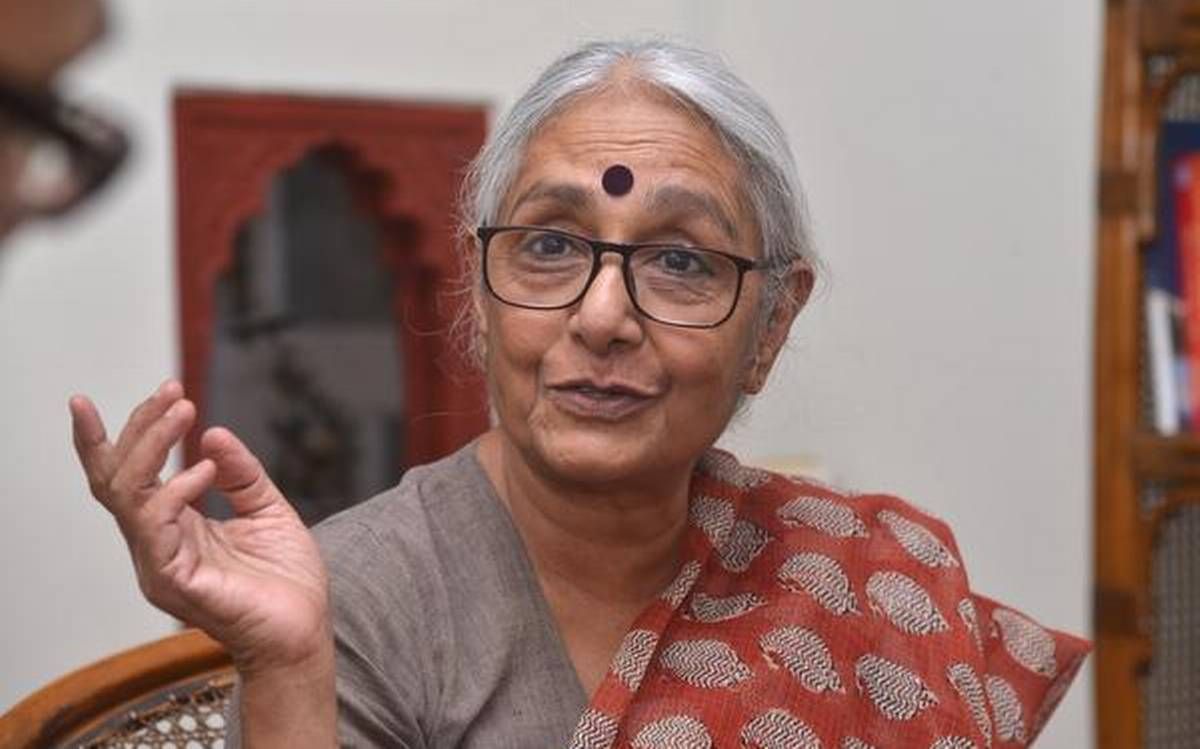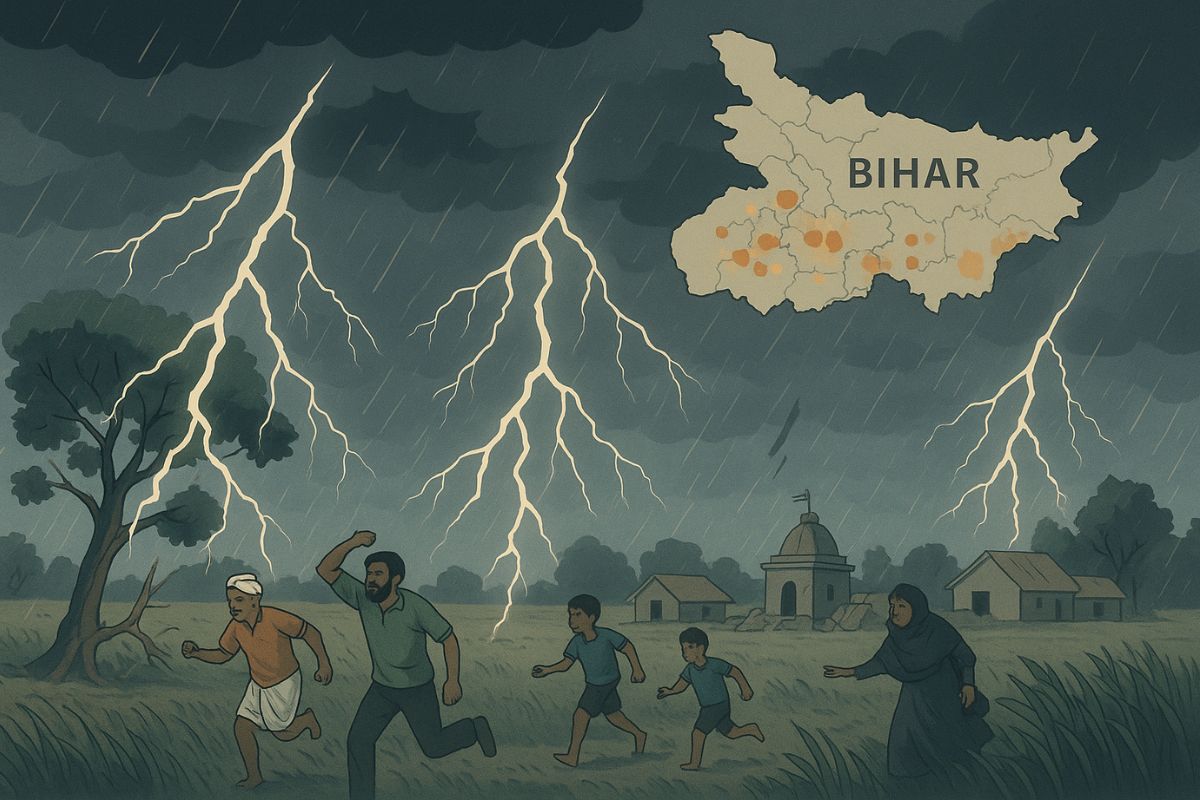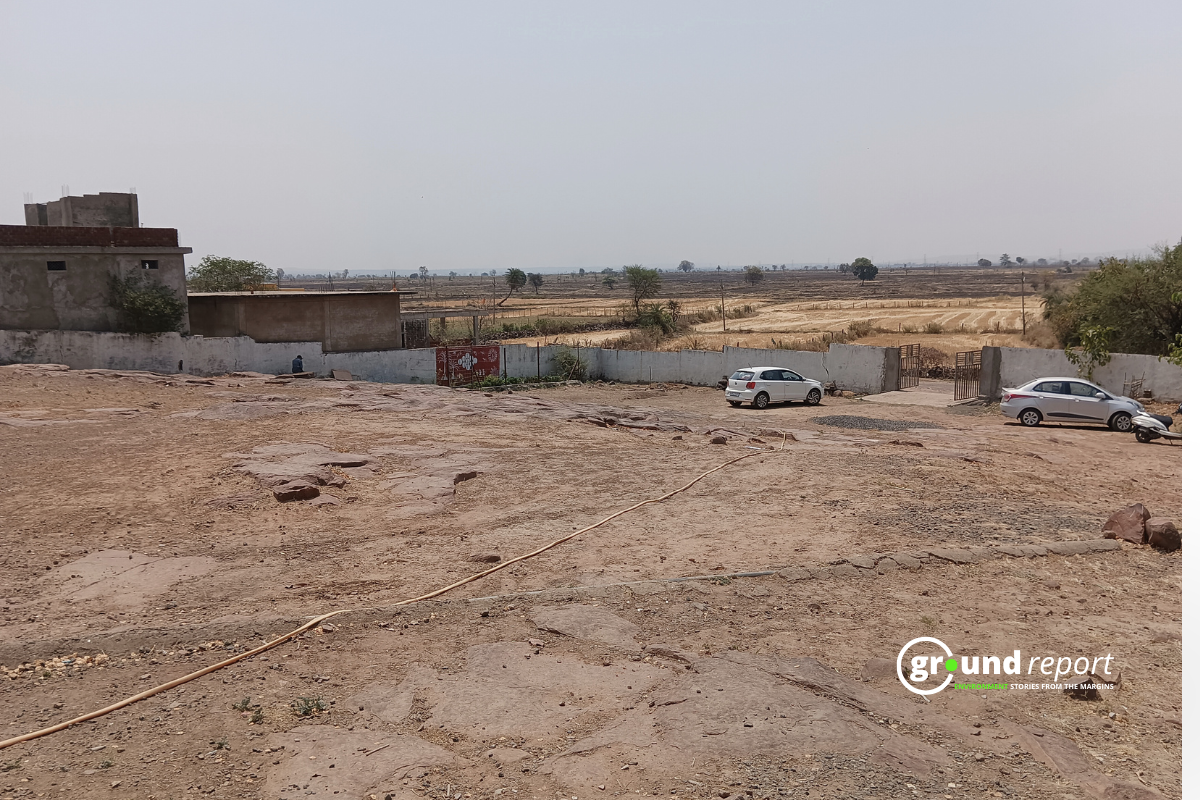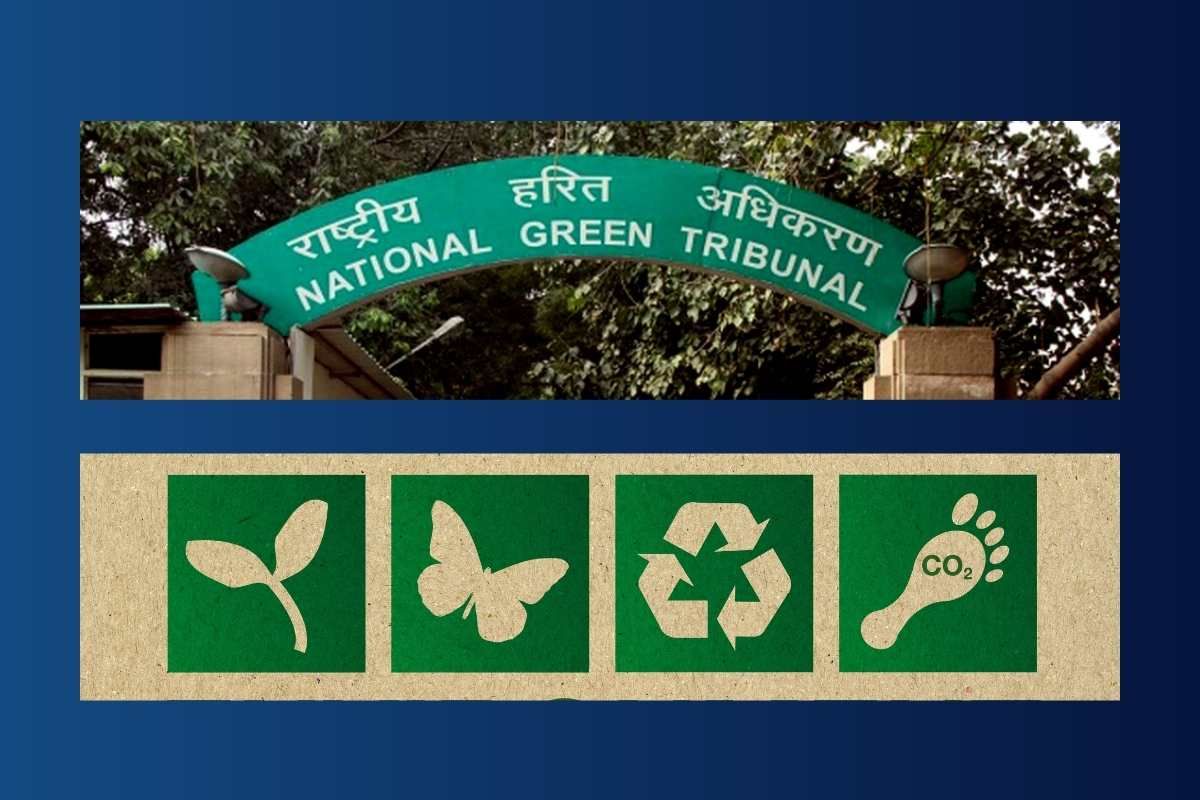Ground Report | New Delhi: 10 Indian women activists; Indian women have always been a symbol of beauty, strength, and intelligence. Today the success of Indian women in various walks of life has proved that they have earned this reputation very well. If you look deeply, you will realize that some of the major contributors to Indian society have been the active participation of very focused and dedicated women. Women activists have been instrumental in changing many social evils and have been a shining ray of hope.
Here are 10 Indian women activists who have created change
1.Medha Patkar: Medha Patkar is a prominent social activist of our country who works on a variety of major political and economic issues that affect tribals, Dalits, farmers, labourers, and women in India who are victims of injustice. She is a founding member of the well-known Narmada Bachao Andolan(NBA), a movement to safeguard Gujarat’s rivers and people. She as a human rights activist based her efforts on two fundamental tenets of the Indian constitution: the right to life and the right to livelihood.
For stopping the dam constructions on the Narmada River which led many local people’s lives in suffering Patkar led NBA members and 3,000 villagers displaced by dam projects on a march from northern Madhya Pradesh to the Sardar Sarovar dam site in 1990, but they were stopped by police and pro-dam activists at the Gujarat border. Patkar and the NBA were able to obtain a breakthrough in 1993 when the World Bank withdrew from the project after more protests and opposition, including hunger strikes.
Thus due to her firm and continuous strive for saving Narmada river and people living near the river, govt had to stop its Narmada Valley Development Project. Patkar also collaborated with local people to build energy, water, and education options, and she established a system of residential and day schools in Maharashtra, Madhya Pradesh, and Gujarat villages.
She has gained worldwide recognition for raising voice on major social and environment issues and achieved many awards including Right Livelihood Award (1991) and Goldmen Environment Award (1992).
2. Kiran Bedi: Born in Punjab’s holy city of Amritsar, Kiran Bedi is a social activist and the country’s first female IPS officer. She has not only given her all to her department, but she has also given her all to a variety of social concerns. Kiran was the first Indian woman to be appointed as a Policy Advisor to the United Nations Secretary-General in the Department of Peacekeeping Operations.
In 1994, Bedi founded the India Vision Foundation (IVF) which focuses on police and prison reform, women’s empowerment, and rural and community development. She also promoted greater training while opposing the hazing of trainees in the realm of police reform.
She also started Nav Jyoti India Foundation which provided residential treatment to almost 20,000 drug and alcohol addicts over the next 25 years. It also began crime prevention programmes, such as street and slum children’s education. She has actively participated in the 2011 Indian Anti Corruption Movement lead by Anna Hazare (10 Indian women activists).
ALSO READ: WHY DO PEOPLE DIE OF ‘HEARTBREAK’?
Kiran Bedi has gained numerous awards including Ramon Magsaysay Award (1994) and United Nations Medal (2004).
3. Laxmi Agarwal: Lakshmi Agarwal is an acid attack survivor as well as a fighter for acid attack victims’ rights and a television host. She is an inspiration for all the Acid attack survivors to live their life with self-confidence and dreams. She is the director of the Chhanv Foundation, an NGO committed to assisting acid attack survivors in India. US First Lady Michelle Obama presented Laxmi with the International Women of Courage Award in 2014. She’s also the face of Viva and Diva, a campaign encouraging all girls to focus on their inner beauty rather than their outward appearance.
She was attacked in 2005 when she was just 15 years old. Yet she fought for her justice and raised her voice for all acid attack survivors. The Supreme Court issued judgments in 2013 regulating the sale of acid, compensating victims, and recognising acid violence as a separate crime in response to Laxmi Agarwal’s writ case from 2006 (10 Indian women activists).
4. Aruna Roy: Aruna Roy is most recognised for her anti-corruption and government transparency activities. Aruna Roy has been at the forefront of several movements for poor and marginalised people’s rights. The Right to Information, the Right to Work (the NREGA), and the Right to Food are among the most well-known of these.
As a member of the Pension Parishad, she has recently been involved in the push for a universal, non-contributory pension for unorganised sector workers. Aruna has received numerous awards for her contributions to society, including the Ramon Magsaysay Award for Community Leadership in 2000, the Lal Bahadur Shastri National Award for Excellence in Public Administration, Academia, and Manpower in 2005, and the Ramon Magsaysay Award for Community Leadership in 2006.
5. Sunitha Krishnan: Sunitha Krishnan is another well-known Indian social activist who has fought human trafficking and commercial sexual exploitation. Krishnan is the chief functionary and co-founder of Prajwala, an NGO that works to rescue, rehabilitate, and reintegrate sex-trafficked victims into society. She is a survivor of sexual violence.
Krishnan’s love for social work blossomed when she began teaching dancing to mentally challenged children at the age of eight.
She began running slum schools for poor children by the age of twelve and while working for these communities she was sexually assaulted by a group of men. Apart from volunteering in the Prajwal NGO, Dr. Krishnan has also been quite active in advocacy work, producing different policy recommendations and consulting on government policy-making businesses.
In appreciation of her efforts to stop human trafficking, Dr. Krishnan was awarded a “TIP Report Hero Acting to End Modern Slavery” in 2009. Despite many attempts in her life, she continues to fight for better policies and to collaborate with Prajwala to prevent sex trafficking. She was also given the 4th highest civilian award of India Padma Shree in 2016 and many other prestigious awards.
6. Arundhati Roy: Arundhati Roy is best known for her award-winning novel ” The God of Small Things “(1997) and her activism in the environmental and human rights movements. She has fought against the Narmada dam project with activist Medha Patkar, claiming that the dam will evict half a million people with little or no compensation and will not offer the anticipated irrigation, drinking water, and other benefits. She is also a political activist involved in human rights and environmental causes.
Roy was involved in a number of environmental and human rights movements, frequently clashing with Indian legal authorities and the country’s middle class. She was chastised for her outspoken support for Maoist-backed Naxalite insurgents, which she detailed in the book Walking with the Comrades (2011).
On the other hand, Roy received the Lannan Cultural Freedom Award in 2002, the Sydney Peace Prize in 2004, and the Sahitya Akademi Award from the Indian Academy of Letters in 2006. And these awards were given in honour of her outspoken support for human rights (10 Indian women activists).
7. Kriti Bharti:- Kriti Bharti is a social activist who advocates for the abolition of child marriage in India as well as women’s social justice. She is the creator of the Saarthi Trust, an organisation dedicated to annulling child marriages, offering counselling to children and their families, and rehabilitating child marriage victims. She founded Saarthi Trust in 2011 as a result of her work with children in NGOs. Bharti has received numerous murder and rape threats during the course of her campaign but she never feared and continued her work.
ALSO READ: 135 MILLION PEOPLE MAY BE DISPLACED BY 2045 DUE TO DESERTIFICATION
More than 6,000 children and 5,500 women have been rehabilitated by the Saarthi Trust. Since its establishment in 2011, Bharti’s team has annulled over 44 child weddings and prevented over 1,400 others from taking place.
8. Vandana Shiva:- Vandana Shiva is an Indian scholar, environmental activist, food sovereignty advocate, ecofeminist, and anti-globalization author. Shiva is a Delhi-based author who has published over 20 books. Her activism in the anti-GMO campaign has earned her the moniker “Gandhi of grain.” She has spoken out for women’s rights, environmental issues, and a variety of other social issues.
Dr. Shiva emphasises the protection of farmers’ rights in her fight against civil disobedience on forests. Her organisation, the Research Foundation for Science, Technology, and Natural Resource Policy were founded by her in 1982. And it is dedicated to the development of sustainable agriculture.
Shiva was declared a “environmental hero” by Time magazine in2003, and Asia Week named her one of Asia’s five most prominent communicators.She was given the Order of the Golden Ark, the UN’s Global 500 Award, the Earth Day International Award, the Lennon Ono Peace Grant, and the Sydney Peace Prize in 2010.
9. Manasi Pradhan: Manasi Pradhan is an author and activist for women’s rights in India. She is the originator of the Honour for Women National Campaign, a statewide campaign in India dedicated to ending violence against women.
She started an NGO OYSS Women in 1987. The initial goal was to assist female students in obtaining higher education and developing into future leaders in society. OYSS Women has been holding leadership workshops, education and vocational training camps, legal awareness, and self-defense programmes for hundreds of young women grooming them to be future leaders in their fields. Apart from this, the group engages in a wide range of activities and events and is widely credited with pioneering contributions to women’s empowerment. The group is also the driving force behind the National Campaign for Women’s Honour.
The President of India awarded her the Rani Laskhmibai Stree Shakti Puraskar in 2014. In 2011, she shared the ‘Outstanding Women Award’ with Mary Prema Pierick, the global head of the Missionaries of Charity.
10. Saraswathi Gora: Saraswathi Gora was an Indian social activist who campaigned against untouchability and the caste system for many years as the leader of the Atheist Centre.
Saraswathi started pushing for devadasis marriages and the remarriage of widowed ladies in the year 1930.In1944, in response to her efforts to abolish the caste system and promote social reform, they were invited to stay at Mahatma Gandhi’s ashram in Sevagram, where they stayed for 2-3 weeks (10 Indian women activists).
She founded the Atheist Center in 1940 with the goal of developing human values through Gandhism, atheism, and rationalism. She was an activist in India’s “independence movement,” and she was imprisoned while carrying her two-year-old son “Niyanta” in her arms. She was actively involved in advocating against the abolition of the caucasian race.
In the year 2000, she was awarded the Karnataka Government’s Basava Puraskar. She has also received the G.D. Birla International Humanism Award, the Jamnalal Bajaj Award (1999), the Janaki Devi Bajaj Award, and the Potti Sriramulu Telugu University Award.
You can connect with Ground Report on Facebook, Twitter, and Whatsapp, and mail us at GReport2018@gmail.com to send us your suggestions and writeups









